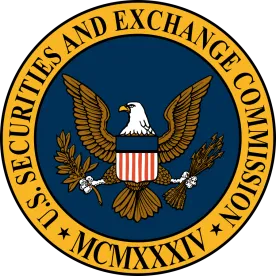In a ruling handed down on Tuesday, a Southern District of New York judge ordered the U.S. Attorney’s Office for the Southern District of New York (“USAO”) to submit a full account of their communications with the SEC after defendant Jason Rhodes accused the USAO of using the SEC to develop its criminal case against him.
Rhodes was charged with four counts, including conspiracy to commit securities fraud and wire fraud, securities fraud, wire fraud, and investment advisor fraud, in what the government alleges was an elaborate $19.6 million scheme to defraud investors. Notably, the charges against Rhodes were brought almost two years after the government charged all other co-conspirators. During that time, the SEC initiated an investigation involving Rhodes.
In a motion filed back in March of this year, Rhodes argued that the USAO may have violated his due process rights by using the SEC civil process to further its criminal investigation against him. During the SEC’s investigation, it used its investigatory authority to obtain documents from Rhodes, including communications and data from his cellphone. These documents were then turned over to the USAO and the substance of certain of those documents was subsequently included in the criminal complaint against him. Rhodes asserted in his motion, as soon he was arrested, the SEC stopped investigating him.
Given that timeline, the court insisted the USAO submit an affidavit outlining its relationship with the SEC regarding its civil investigation and its criminal charges against Rhodes. After one AUSA submitted an affidavit, the court held that as of now, Rhodes had not shown the government acted in bad faith. The court went on to say, however, that the submitted affidavit “d[id] nothing to advance the ball.” While the AUSA insisted that he did not request the issuance of the SEC subpoena, the affidavit was silent regarding the involvement of others in the USAO. As a result, the court ordered that the USAO submit a new affidavit “detailing, with specificity, the nature and extent of any and all communications between the SEC and those involved in the criminal investigation of Rhodes.” Only then will the court determine whether the materials should be turned over to Rhodes.
The SEC and U.S. Attorney’s Office across the country often conduct parallel investigations and the SEC regularly shares the information it gathers with those offices. While there is nothing to prevent the government from conducting parallel investigations, the government must act “in good faith and with the proper procedures.” See United States v. Kordel, 397 U.S. 1, 6(1970). Indeed, the SEC warns in its “Form 1662” that it may share the information and documents produced pursuant to a subpoena (or voluntarily) to a host of other agencies, including, but not limited to, state and federal criminal authorities. It is, however, well-settled law at this point that the criminal authorities cannot direct the SEC’s investigation and that any action taken by the SEC, including subpoenas for documents, testimony and other evidence, must be supported by the SEC’s independent decision making and must be in furtherance of its investigation; not the criminal authority’s investigation. See, e.g., United States of America v. Stringer, 408 F. Supp. 2d 1083 (Dist. Or. 2006); United States of America v. Scrushy, 366 F. Supp. 2d 1134, 1140 (N.D. Ala. 2005.





 />i
/>i
